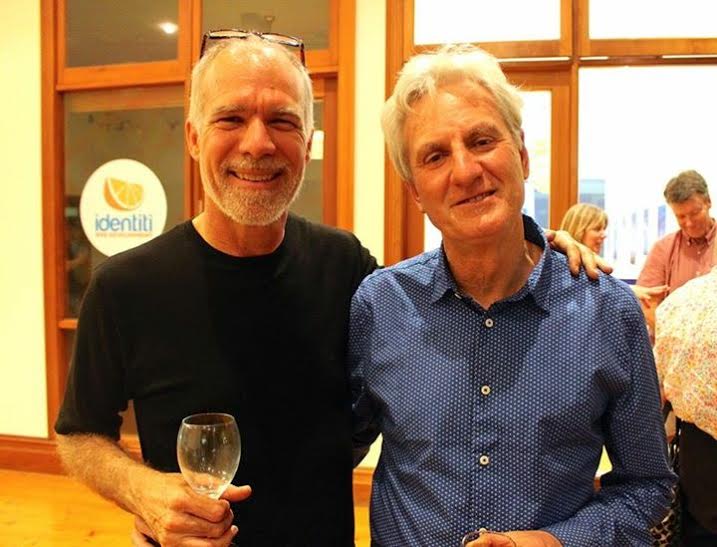In anticipation of the launch of Dr Jane Simpson's A world without maps in Christchurch, New Zealand, IP Assistant Editor, Emerald Garcia-Finnis, interviewed Jane about how her experiences living in the Middle-East influenced her writing.
E G-F: Do you see the book as promoting multi-cultural/cross-cultural
understanding?
JS: Good political poetry in the West is a
rare thing. I would be very suspicious of poetry that aimed to promote ‘multi-cultural
or cross-cultural understanding’. My professional background is in History and Religious
Studies, first as a lecturer at the University of Canterbury, NZ, and then as a
secondary school teacher in the UK after 2005. Religious Studies uses many
different academic disciplines to help us understand religions and cultures
from times and places which are very different from our own.
The first section of A world without maps draws on my
experience of living and working in the UAE, at the boundary of Western and
Bedouin cultures. Being in this liminal space gave me a double perspective; by
understanding more of the Middle East we understand more of ourselves. Without
this, cross-cultural understanding is impossible. Some of the poems in this
section gently challenge our stereotypes of Muslim culture. Others are
subversive and strongly political, especially so when read in the UAE. I hope
that my poems, which tell stories and create strong images, open up for the
reader new ways of seeing and understanding. For example, instead of fearing
Muslims in the street after the London bombings of July 2005, I learned to see
them as people. This carries over to my poems.
E G-F: What experiences and influences drew you to write
about the Middle East?
JS: To prepare to teach
English to Muslim women teachers in Al Ain, an ancient oasis city in the Abu
Dhabi Emirate, I read tourist guidebooks, company briefings and information
from numerous websites. Nothing prepared me for what I encountered, as I became
immersed in a diverse Muslim community, older generations of Emirati still
close to their Bedouin roots but the majority becoming rapidly westernized and
materialistic. Polyglot ex-patriate communities vastly outnumbered the
indigenous people, and brought their own cultural riches. Enchanted by living
in this world, I started to ask many questions, but didn’t know how to express
them to others. A teacher from another company suggested I write a book for
high-qualified westerners working in public-private partnerships in the Middle
East, who needed a deeper sense of cross-cultural awareness to do their jobs
effectively. Little then did I know this would be a poetry collection.
E G-F: Did these experiences change your approach to
poetry?
JS: The experiences of living
and working in the UAE generated stories and images which I meshed with
understandings from Islam, the sciences, archaeology and anthropology to create
a deeper level of meaning. The two became integrated as I found metaphors that
moved between these two worlds. I’ve always been interested in code-switching
in poems, suddenly shifting from the exalted to the mundane. Middle-eastern
cultures lent themselves to this approach (see ‘Where zebra crossed’). Few of
the poems in my chapbook, Candlewick
kelp, were political. In A world without
maps all three sections have poems where the subject wrestles with changing
power relationships. These are brought alive by the use of story,
personification and metaphor.
 |
| Dr Jane Simpson |
E G-F: Your poetic techniques vary in style in each
section. What were you trying to convey in each?
JS: I see the elements of
poetry – form and pattern, space, line breaks, and the music (rhyme, rhythm and
the ‘sonic’ landscape) as a repertoire we can draw on as we create and shape
our poems. Other skills come into play in writing a sequence and putting
together a collection. The music of poetry is very important to me; I have
written poetry and music together and recorded a CD, Tussocks Dancing, now available on Spotify.
In Section I, ‘Desert
logic’, the poems are stripped back and have empty spaces, in keeping with the
desert theme. Compared with other sections, the layout is more varied; double
columns create a space to bridge across from word to word, allowing meditation.
Some poems have refrains.
In section II, ‘The space
between the leaves’, and III, ‘Like fantails in the forest’, the poems are more
tightly patterned and layered. They use a wider range of forms: sonnets, a blues
sonnet and elegies. Some are direct responses to well-known poems. Sometimes I
used a detailed sonic analysis of a poem by a contemporary British or American
poet I had made months earlier (see ‘Lethe’). I believe that using the
classical form of the sonnet makes the poems about my family much more than
personal poems; listeners who have never met me immediately identify with the
people in them, even if set in the 1940s and 1950s – a period I know well as an
historian.
Jane's A world without maps will be launched by Bernadette Hall, Winner, New Zealand Prime Minister's Award for Literature, at Scorpio Books, 113 Riccarton Road, Riccarton, Christchurch, Saturday 5 November from 2pm.











